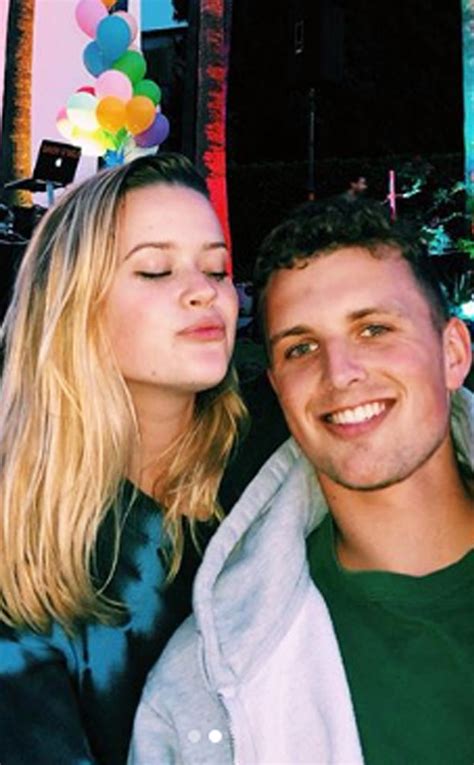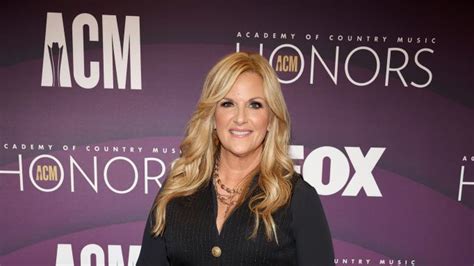
Ava Phillippe, daughter of Reese Witherspoon, recently responded to social media users who made comments about her boyfriend, Owen Mahoney, resembling her father, Ryan Phillippe. The comments surfaced on an Instagram post featuring the couple, prompting Phillippe to directly address and shut down the remarks.
Ava Phillippe, 24, daughter of actress Reese Witherspoon and actor Ryan Phillippe, recently addressed online commentary regarding her boyfriend, Owen Mahoney, and his perceived resemblance to her father. The discussion arose following an Instagram post featuring Phillippe and Mahoney, which garnered a series of comments suggesting a familial likeness between Mahoney and Ryan Phillippe. In a direct response, Ava Phillippe dismissed these comments, asserting her autonomy and shutting down the narrative.
The initial Instagram post, showcasing a series of photos of Ava Phillippe and Owen Mahoney, prompted numerous users to express their opinions on Mahoney’s appearance. Several comments highlighted a perceived similarity between Mahoney and Ryan Phillippe, with some users explicitly stating that Mahoney looked like Ava’s father. These comments quickly gained traction, prompting a broader discussion among followers and observers.
Ava Phillippe’s response to the comments was direct and unambiguous. While the exact wording of her response was not publicly disclosed beyond being described as “shutting down” the comments, it underscored her disapproval of the comparisons and her desire to disassociate her relationship with Mahoney from any familial comparisons. Her reaction reflects a broader trend among younger generations to assert control over their personal narratives and challenge unsolicited commentary on their lives.
The incident highlights the complexities of navigating personal relationships within the public sphere, particularly for individuals with celebrity parents. Ava Phillippe, who has grown up in the public eye, has often been subject to scrutiny and commentary regarding her appearance, relationships, and personal choices. Her decision to address the comments directly reflects a proactive approach to managing her public image and asserting her independence.
This situation also raises questions about the nature of online discourse and the impact of unsolicited opinions on personal lives. While social media platforms provide avenues for connection and expression, they also facilitate the spread of commentary that can be intrusive and unwelcome. Ava Phillippe’s response serves as a reminder of the importance of respecting personal boundaries and refraining from making assumptions or judgments about others’ relationships.
The broader context of Ava Phillippe’s public persona is also relevant. As the daughter of two prominent actors, she has been the subject of media attention since childhood. Over the years, she has cultivated her own identity, separate from her parents’ careers, while also navigating the expectations and pressures that come with being a celebrity offspring. Her involvement in various projects, including modeling and brand collaborations, has further solidified her presence in the public eye.
The “dad” comments directed at Ava Phillippe are not isolated incidents but rather part of a larger pattern of public scrutiny that often accompanies individuals with famous parents. Such commentary can range from comparisons to their parents’ achievements to judgments about their personal choices. Ava Phillippe’s response is indicative of a growing awareness among young celebrities of the need to actively manage their public image and assert their independence.
The episode also underscores the changing dynamics of online engagement. While social media platforms were initially conceived as spaces for connection and sharing, they have also become arenas for unsolicited opinions and commentary. Individuals, particularly those in the public eye, are increasingly taking steps to manage their online presence and address unwelcome interactions. This includes setting boundaries, filtering comments, and directly responding to commentary that is deemed inappropriate or intrusive.
The incident involving Ava Phillippe also sheds light on the broader issue of societal expectations and norms surrounding relationships. The comments comparing Mahoney to Ryan Phillippe reflect a tendency to impose preconceived notions about age, appearance, and family dynamics on personal relationships. Ava Phillippe’s response challenges these norms and asserts her right to define her relationship on her own terms.
Moreover, the incident highlights the significance of respecting personal boundaries in the digital age. While social media platforms offer opportunities for interaction and engagement, it is essential to recognize the importance of respecting individuals’ privacy and refraining from making unsolicited comments or judgments about their personal lives. Ava Phillippe’s response serves as a reminder that everyone has the right to define their own relationships and personal narratives without being subject to intrusive commentary.
In conclusion, Ava Phillippe’s response to the “dad” comments regarding her boyfriend underscores her proactive approach to managing her public image and asserting her independence. The incident highlights the complexities of navigating personal relationships within the public sphere, the impact of unsolicited opinions on personal lives, and the importance of respecting personal boundaries in the digital age. Her actions reflect a growing trend among young celebrities to take control of their narratives and challenge societal expectations surrounding relationships and personal identity.
Expanded Details and Context:
The incident involving Ava Phillippe and the comments about her boyfriend’s resemblance to her father, Ryan Phillippe, is multifaceted and delves into several layers of social dynamics, celebrity culture, and the evolving nature of online interactions. To fully understand the context and implications of this event, it’s necessary to explore the background of the individuals involved, the specific nature of the online discourse, and the broader societal trends that contribute to such situations.
Background of Ava Phillippe and Her Public Persona:
Ava Phillippe, born on September 9, 1999, is the eldest child of actors Reese Witherspoon and Ryan Phillippe. Growing up in the public eye due to her parents’ fame, she has been subject to media attention since childhood. This early exposure has shaped her public persona and influenced her approach to managing her image.
Unlike some celebrity children who remain largely private, Ava Phillippe has cultivated a presence on social media platforms, particularly Instagram, where she shares aspects of her life with her followers. Her posts often feature personal moments, including travel, fashion, and relationships. This active engagement has allowed her to connect with a wide audience and build her own identity, separate from her parents’ careers.
Over the years, Ava Phillippe has also ventured into various professional endeavors, including modeling and brand collaborations. She has worked with several fashion and beauty brands, further solidifying her presence in the public eye. These projects have not only allowed her to express her creativity but also to establish herself as an independent individual with her own unique style and interests.
Nature of Online Discourse and Social Media Commentary:
The comments directed at Ava Phillippe regarding her boyfriend’s resemblance to her father reflect a broader trend of unsolicited opinions and commentary on social media platforms. While these platforms offer opportunities for connection and sharing, they also facilitate the spread of commentary that can be intrusive, unwelcome, and even harmful.
In the context of celebrity culture, social media commentary often involves speculation, judgment, and comparison. Individuals in the public eye are frequently subjected to scrutiny regarding their appearance, relationships, and personal choices. This scrutiny can be particularly intense for the children of celebrities, who are often compared to their parents and judged based on their lineage.
The anonymity afforded by social media platforms can also contribute to the proliferation of negative or insensitive comments. Individuals may feel emboldened to express opinions that they would not voice in person, leading to a climate of online discourse that is often characterized by negativity and disrespect.
Societal Expectations and Norms Surrounding Relationships:
The comments comparing Ava Phillippe’s boyfriend to her father also reflect underlying societal expectations and norms surrounding relationships. These expectations often involve assumptions about age, appearance, and family dynamics. In this case, the comments suggest a discomfort with the idea of a romantic partner resembling a family member, even if the resemblance is purely coincidental.
Such comments can be particularly harmful because they impose preconceived notions and judgments on personal relationships. They can also perpetuate stereotypes and reinforce societal norms that limit individual expression and autonomy. By directly addressing and shutting down the comments, Ava Phillippe is challenging these norms and asserting her right to define her relationship on her own terms.
Impact on Personal Lives and Mental Well-being:
Unsolicited commentary and scrutiny can have a significant impact on individuals’ personal lives and mental well-being. Constantly being subjected to judgment and comparison can lead to feelings of anxiety, self-doubt, and insecurity. It can also create a sense of pressure to conform to societal expectations, even if those expectations are not aligned with one’s own values and desires.
For individuals in the public eye, the impact of online commentary can be particularly acute. The constant attention and scrutiny can create a sense of isolation and make it difficult to maintain a sense of privacy and control over one’s own life. It can also lead to a blurring of boundaries between the public and private spheres, making it challenging to navigate personal relationships and experiences without being subject to external judgment.
Strategies for Managing Public Image and Asserting Independence:
In response to the challenges posed by online commentary and scrutiny, many individuals, particularly those in the public eye, are taking steps to manage their public image and assert their independence. These strategies include:
- Setting Boundaries: Establishing clear boundaries between the public and private spheres is essential for maintaining a sense of control and privacy. This can involve limiting the amount of personal information shared online, being selective about the types of content posted, and refraining from engaging with negative or intrusive comments.
- Filtering Comments: Many social media platforms offer tools for filtering comments, allowing users to block or hide comments that are deemed inappropriate or unwelcome. This can help to create a more positive and supportive online environment.
- Directly Responding to Commentary: In some cases, directly responding to commentary can be an effective way to address misinformation, challenge stereotypes, and assert one’s own perspective. However, it is important to approach these interactions with caution and to avoid engaging in arguments or escalating conflict.
- Seeking Support: It is essential to have a strong support system of friends, family, or mental health professionals who can provide guidance and support in navigating the challenges of public scrutiny.
- Focusing on Personal Values and Goals: Staying grounded in one’s own values and goals can help to maintain a sense of perspective and resilience in the face of external criticism. This involves prioritizing personal well-being and focusing on activities and relationships that bring joy and fulfillment.
Conclusion:
The incident involving Ava Phillippe and the comments about her boyfriend serves as a reminder of the complexities of navigating personal relationships within the public sphere. It highlights the impact of unsolicited opinions on personal lives, the importance of respecting personal boundaries, and the need for individuals to assert their independence and define their own narratives. By directly addressing the comments and shutting down the narrative, Ava Phillippe is demonstrating a proactive approach to managing her public image and challenging societal expectations surrounding relationships and personal identity. This incident underscores the evolving dynamics of online engagement and the importance of promoting a culture of respect and understanding on social media platforms. Her actions resonate with a growing movement among young celebrities to take control of their narratives and challenge societal norms, paving the way for a more inclusive and accepting online environment. The ability to define oneself, free from the constraints of public opinion and intrusive commentary, is paramount in fostering personal well-being and promoting healthy relationships. Ava Phillippe’s stance serves as an example for others navigating similar situations, emphasizing the importance of self-assertion and boundary-setting in the digital age. The conversation surrounding this incident extends beyond celebrity culture, touching upon universal themes of identity, autonomy, and the challenges of maintaining personal integrity in an increasingly connected world. The ripple effect of her actions contributes to a broader dialogue about online etiquette, the impact of social media on mental health, and the importance of fostering empathy and respect in online interactions. Her response is not just a personal statement but a cultural commentary on the expectations and pressures faced by individuals in the public eye, particularly young women who are often subjected to unrealistic standards and intrusive scrutiny. In the long run, such actions can help to reshape societal norms and create a more supportive and empowering environment for individuals to express themselves and define their relationships on their own terms. The focus should shift from external judgment to internal validation, empowering individuals to prioritize their own well-being and happiness over the opinions of others. This requires a collective effort to promote media literacy, critical thinking, and empathy in online interactions, fostering a culture of respect and understanding that values individual autonomy and personal boundaries. Ava Phillippe’s response is a significant step in this direction, highlighting the power of self-assertion and the importance of challenging societal norms in the pursuit of personal fulfillment. The dialogue sparked by this incident should continue to evolve, fostering a deeper understanding of the complexities of online interactions and the importance of promoting a more inclusive and respectful digital environment.
Frequently Asked Questions (FAQ):
-
Who is Ava Phillippe?
Ava Phillippe is the 24-year-old daughter of actors Reese Witherspoon and Ryan Phillippe. She has a significant presence on social media and has worked as a model and brand ambassador.
-
What were the “dad” comments about?
The “dad” comments referred to remarks made by social media users on Ava Phillippe’s Instagram post, suggesting that her boyfriend, Owen Mahoney, resembled her father, Ryan Phillippe.
-
How did Ava Phillippe respond to the comments?
Ava Phillippe reportedly “shut down” the comments, indicating her disapproval of the comparisons and her desire to disassociate her relationship with Mahoney from any familial comparisons.
-
Why is this incident considered newsworthy?
The incident highlights the challenges of navigating personal relationships in the public eye, particularly for individuals with celebrity parents. It also raises questions about online discourse and the impact of unsolicited opinions on personal lives.
-
What broader issues does this incident address?
This incident addresses broader issues such as societal expectations surrounding relationships, the importance of respecting personal boundaries in the digital age, and the need for individuals to assert their independence and define their own narratives.









